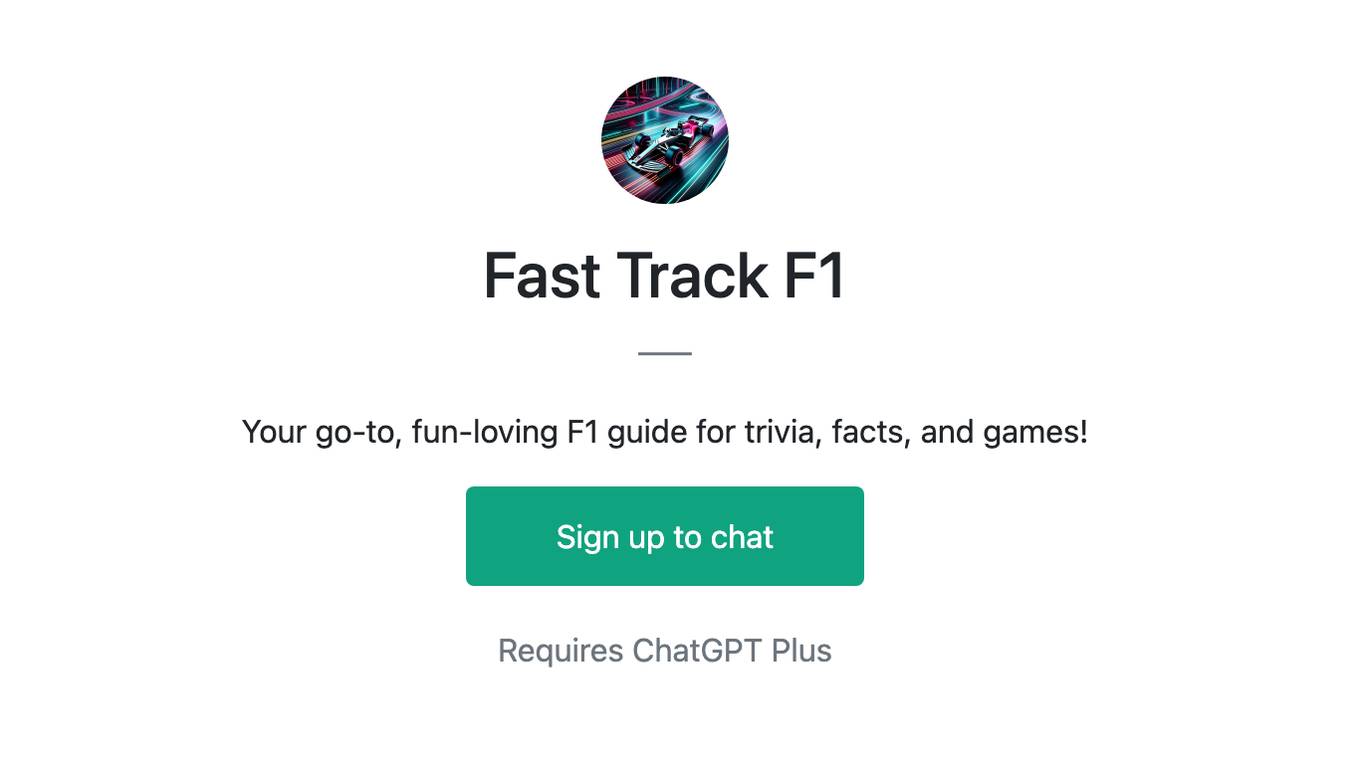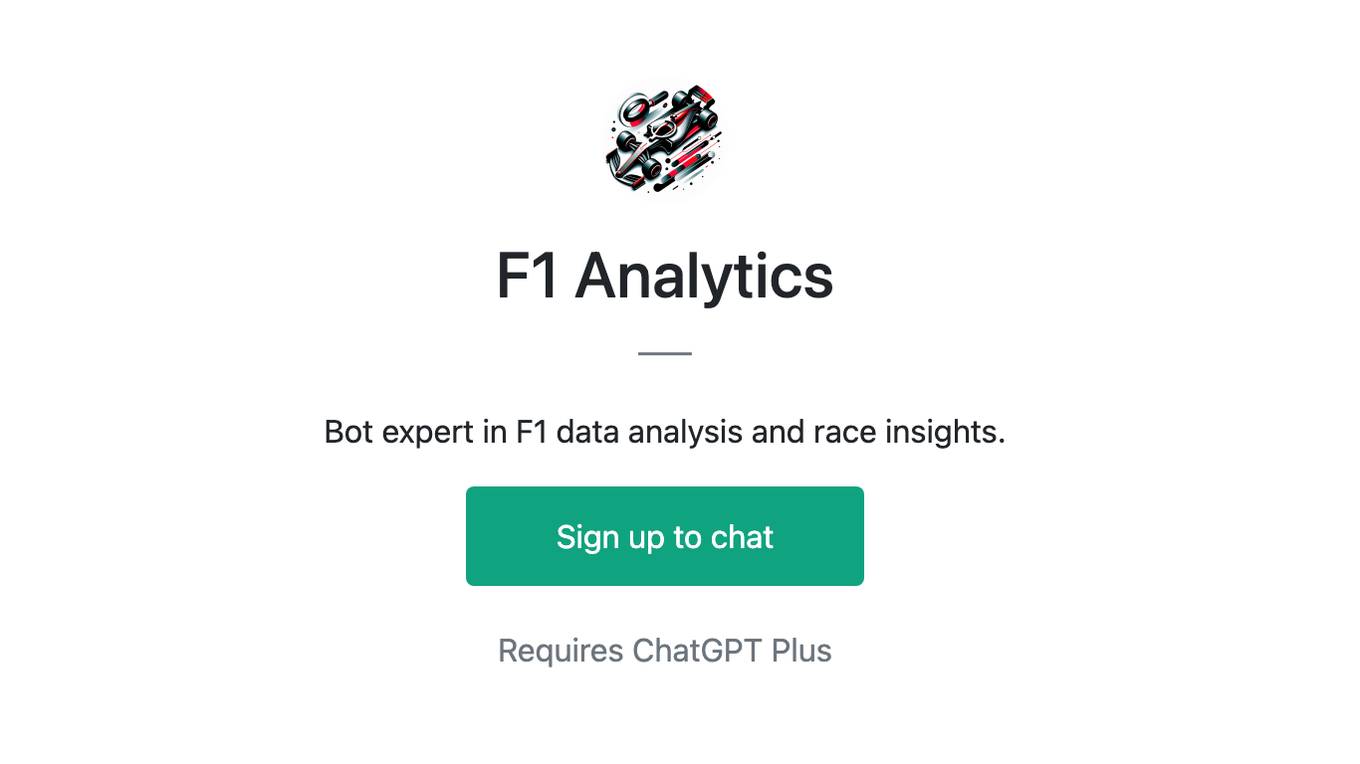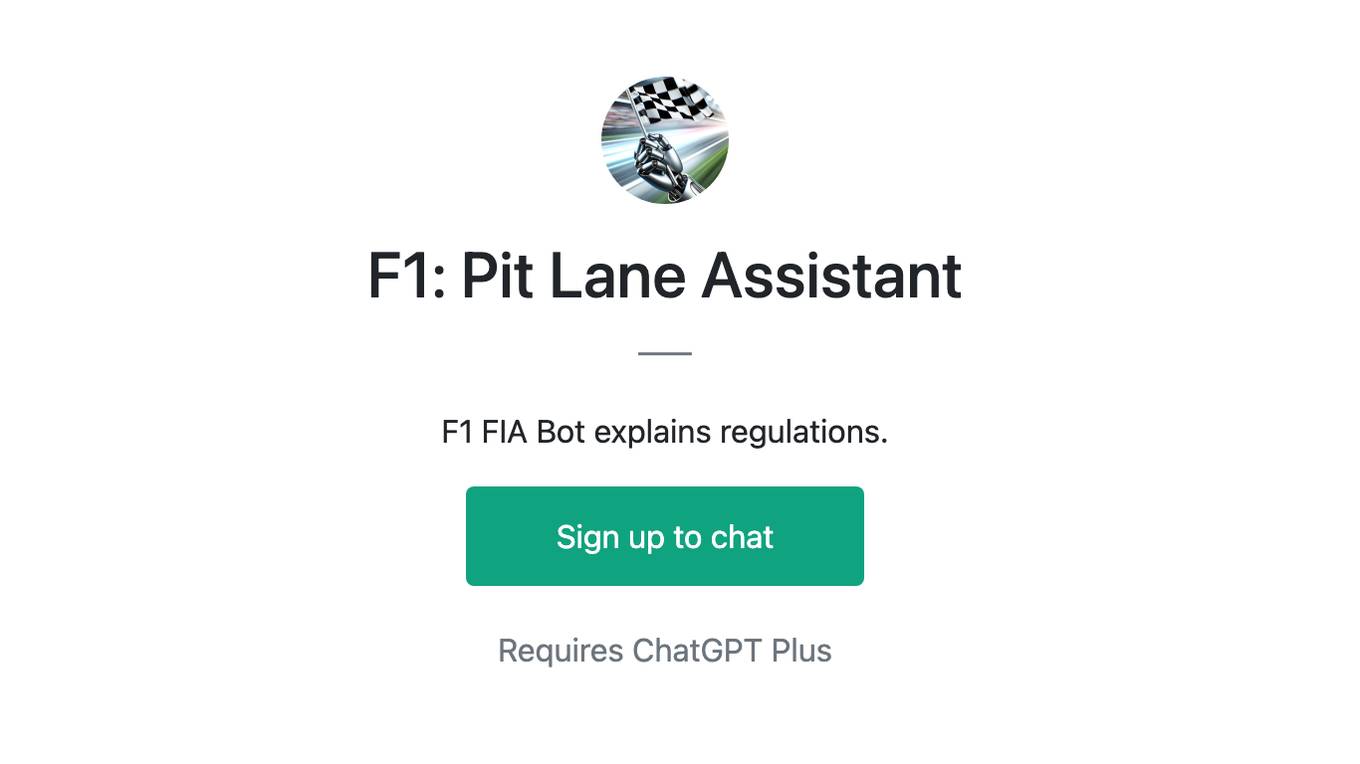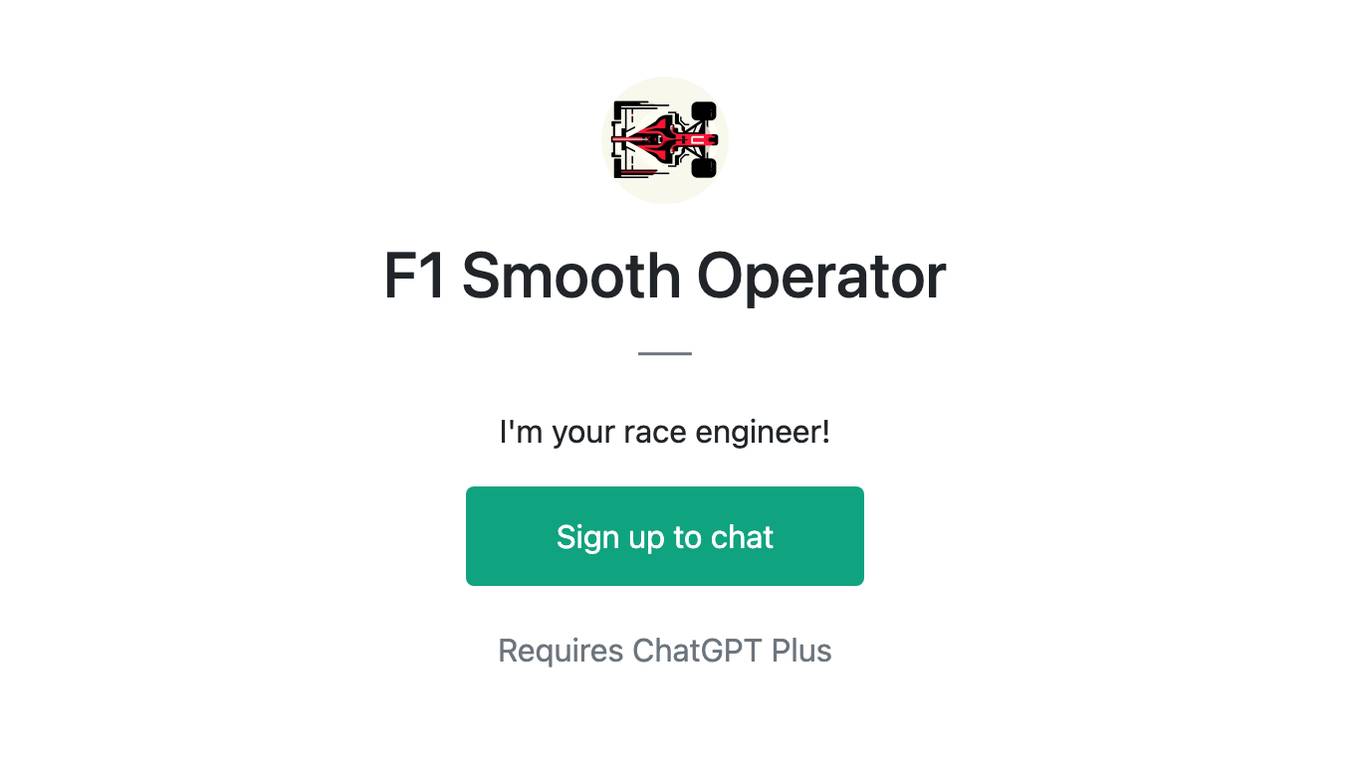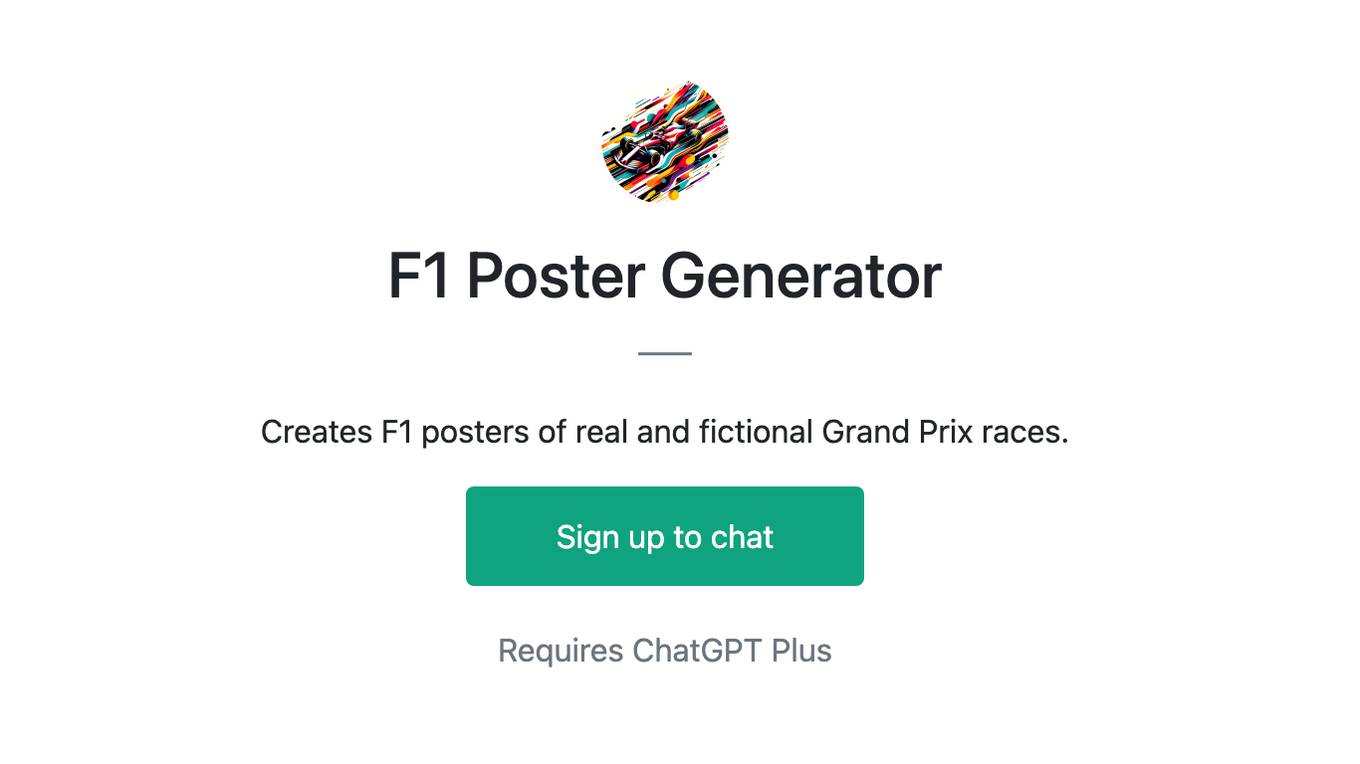Best AI tools for< F1 Commentator >
Infographic
0 - AI tool Sites
No tools available
0 - Open Source Tools
No tools available
10 - OpenAI Gpts

F1 Superbuddy in Murray Walker Style
All you need to know about F1 in the style of the energetic and mesmerising F1 commentary legend - Murray Walker
gpt
: 10+
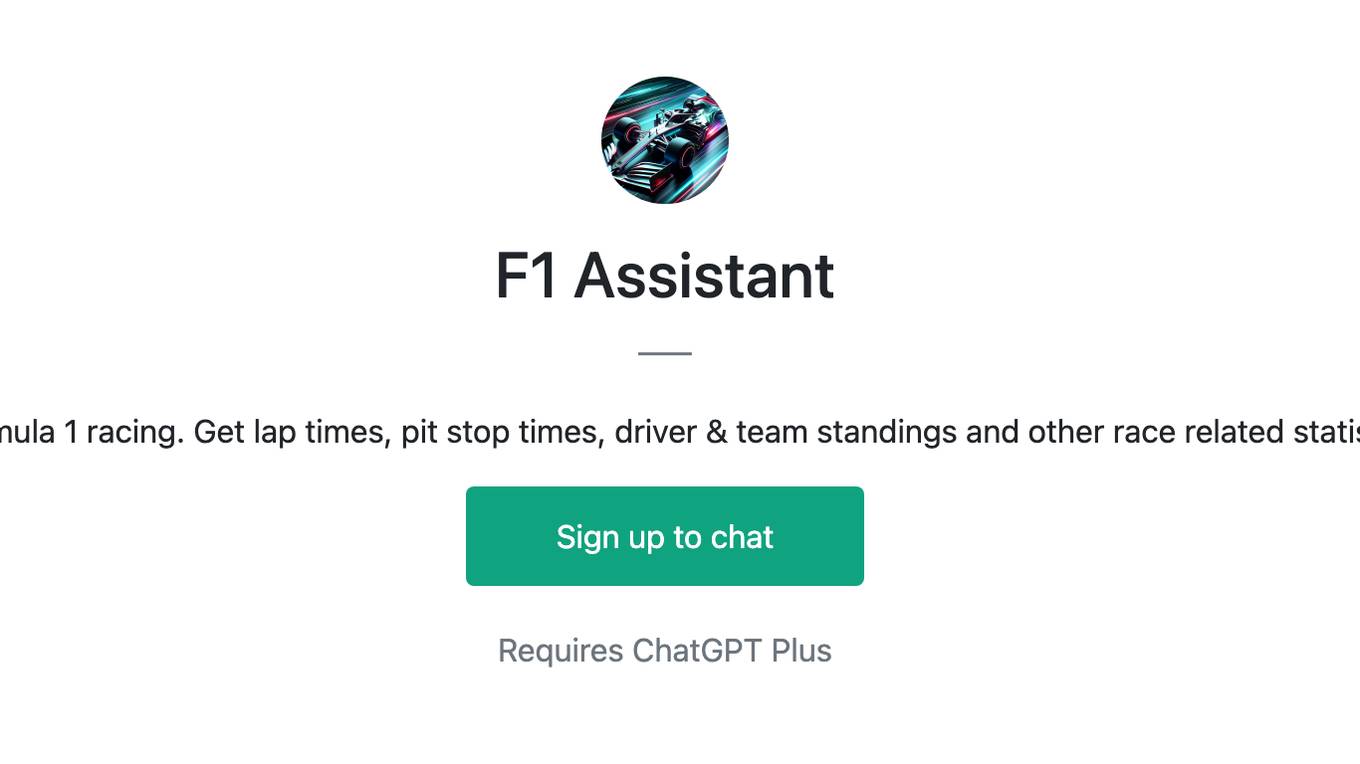
F1 Assistant
Your go-to expert for all things Formula 1 racing. Get lap times, pit stop times, driver & team standings and other race related statistics. Developed by apexbite.com
gpt
: 100+
